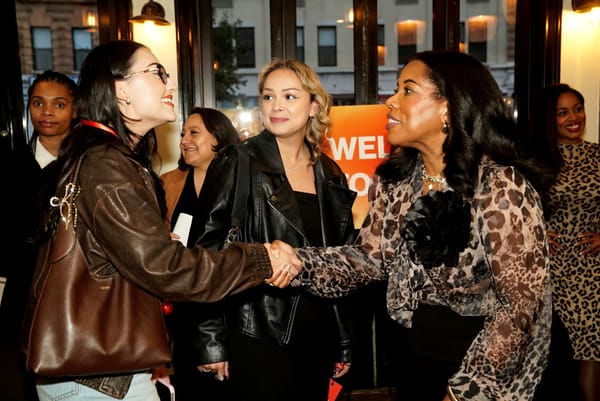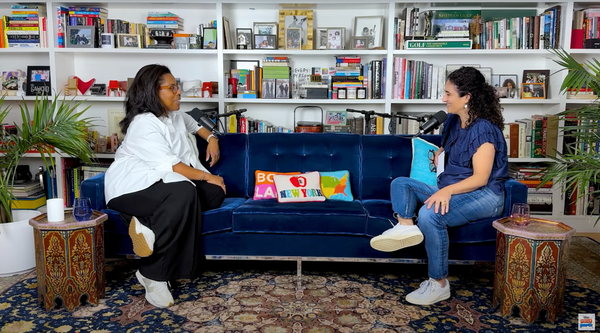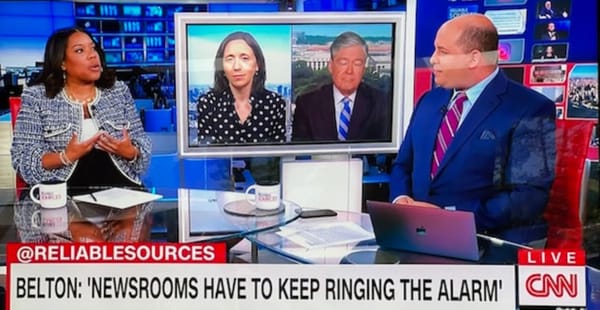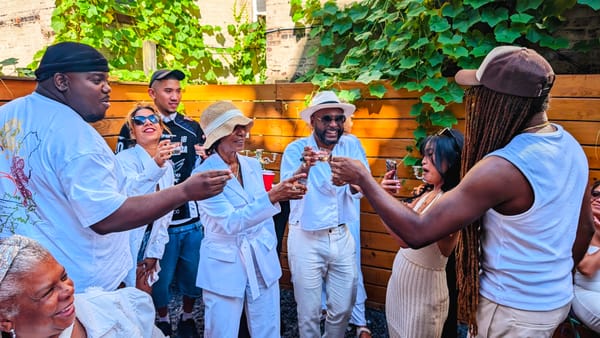On Journalism: I'm Gonna 'Write My Way Out' Like In 'Hamilton'
While the billionaires crashout, journalists are being pushed out. But I'm either too crazy or stubborn to stop.
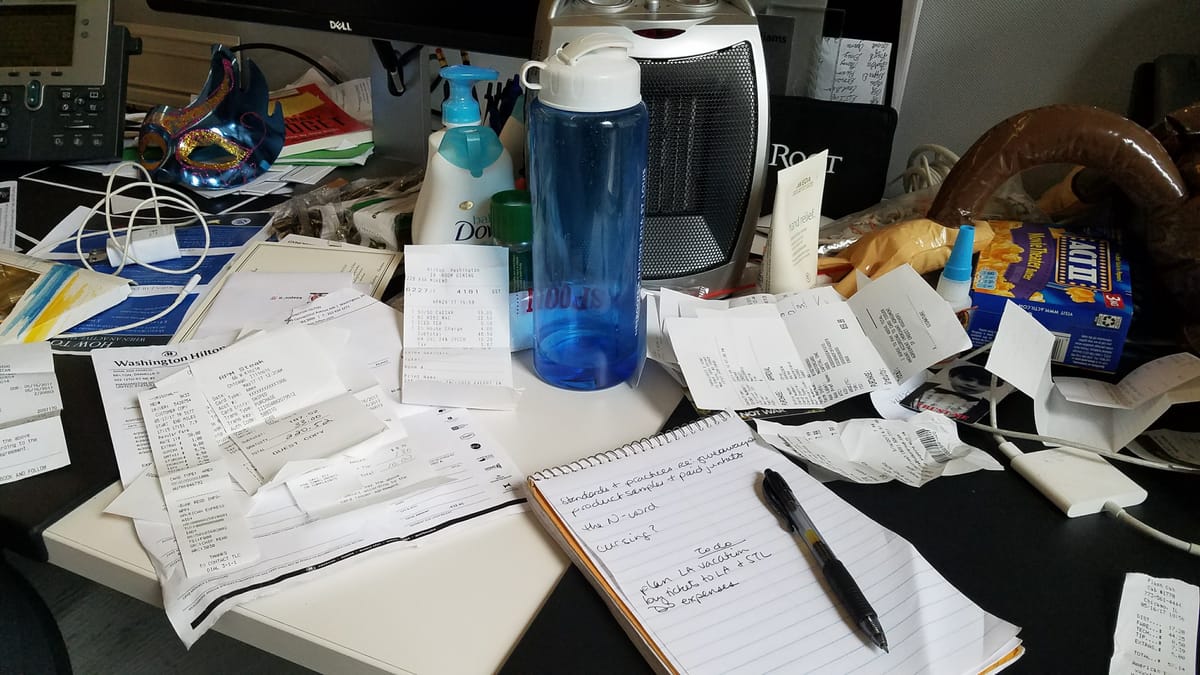
So I have writer's block.
I hate it. But the only way out is to write through it, as my boyfriend, Madison J. Gray, wrote in his most recent newsletter about the current state of the media and the harshness of being unemployed in America.
You remember America, right? The ol' USA, where what is left of our drastically collapsing social safety net is getting shoved in a wood chipper, thanks to the cruelty and avarice of our body politic and our billionaire overlords.
And speaking of billionaires, they kind of ruined my industry. So much so, I know more journalists out of work than working in my friend circle, making LinkedIn a boulevard of broken dreams.
I'll let Madison explain:
Since my former employer gave me the boot in the way faceless, soulless corporations pride themselves on doing, I’ve been witness to the same happening to many friends of mine, people I don’t know, others I don’t care for, and people whom I’ll never meet. LinkedIn has become a gallery of “Open to Work” posts whose creators hope will catch the eye of a sympathetic recruiter or hiring manager. But they probably know the odds are against them. I have yet to hear any of these people proclaim they got a job because of this singular action.
An industry collapse is taking place in what seems like a vacuum – the only ones who apparently notice are the journalists themselves. During my time in the business, many media outlets have shifted to focus on low-hanging fruit in order to make money. Powered, of course, by SEO avarice and high click rate greed. Unique visitors became more valuable than an edified reader.
I left my role at HuffPost in January. It was scary, but I knew I'd be fine. I'd done the work, made great friends, had good work relationships, and a relatively solid professional reputation. I figured out pre-pandemic that it's not about talent, or hustle, or intellect (which are great to have) — it's about the strength of your network, persistence, and "likability." Is that fair? God no. Not everyone wants to launch an elaborate charm offensive 24/7 just to survive. But that's what I had to do on top of having talent, hustle, getting A's in school, and over-performing at work. Thank God, I'm a people-person, or this would have been really disingenuous and awkward!
But while I'm taking meetings and weighing options, for most of my friends and peers, it's been a fresh type of hell every day. Destroyed 401 (k)s. Insane tax bills. Housing insecurity. Health woes. Unemployment being a pittance compared to their former salaries. Having to "pivot" and revamp their lives in their 50s, which should have been their prime earning years before they sailed off into retirement.
Ah, retiremant, something we'll never be able to do because our corporate monarchy has decided that if we can't afford housing in a market destroyed by Airbnb and other short-term rentals, we shouldn't drink Starbucks, eat avocadoes, or basically do anything nice for ourselves in hopes this somehow offsets our retirement losses in the stock market.
It just can't be that a 401 (k) is a sad, sad thing compared to a pension.
Oooo. A PENSION. What's that? My father receives a pension, and I have uncles who have pensions because they either had steady, stable jobs or worked in government, allowing them to retire and live their best lives as people over 70.

My father has been retired since the late 1990s when he was in his 50s. Pretty sure his former corporate overseers are perplexed at how he's beaten the odds in being a relatively healthy Black man who goes to his doctor's appointments and thus didn't stroke out at 55. (I am eternally grateful for this. I adore my father. Watching him just chill with his grandson makes me so happy.) Meaning, they've been paying him to sit on a couch and watch reruns of Gunsmoke for nearly three decades — almost the same amount of time he worked in the aerospace industry as an engineer, and later, a middle manager. He's become a one-man reparations machine at this point after generations of our family having their labor exploited.
As most of our ancestors were sharecroppers, day laborers, and domestic workers, I'm very proud of my dad for seizing the moment by taking advantage of all the great opportunities that existed after the Civil Rights Movement, but before Ronald Reagan's presidency. You know? Stuff like affordable college. Affordable housing. Good jobs with pensions. Affirmative Action. Loans that didn't ruin you financially. Some of it was how he didn't take things for granted, strived for more in life, and is a total hustler. If it was honest work, he did it. Some of it was good fortune. But a lot of it was planning and perseverance. However, the external things that worked so well for him no longer exist for most people today, and it definitely doesn't exist for journalists.
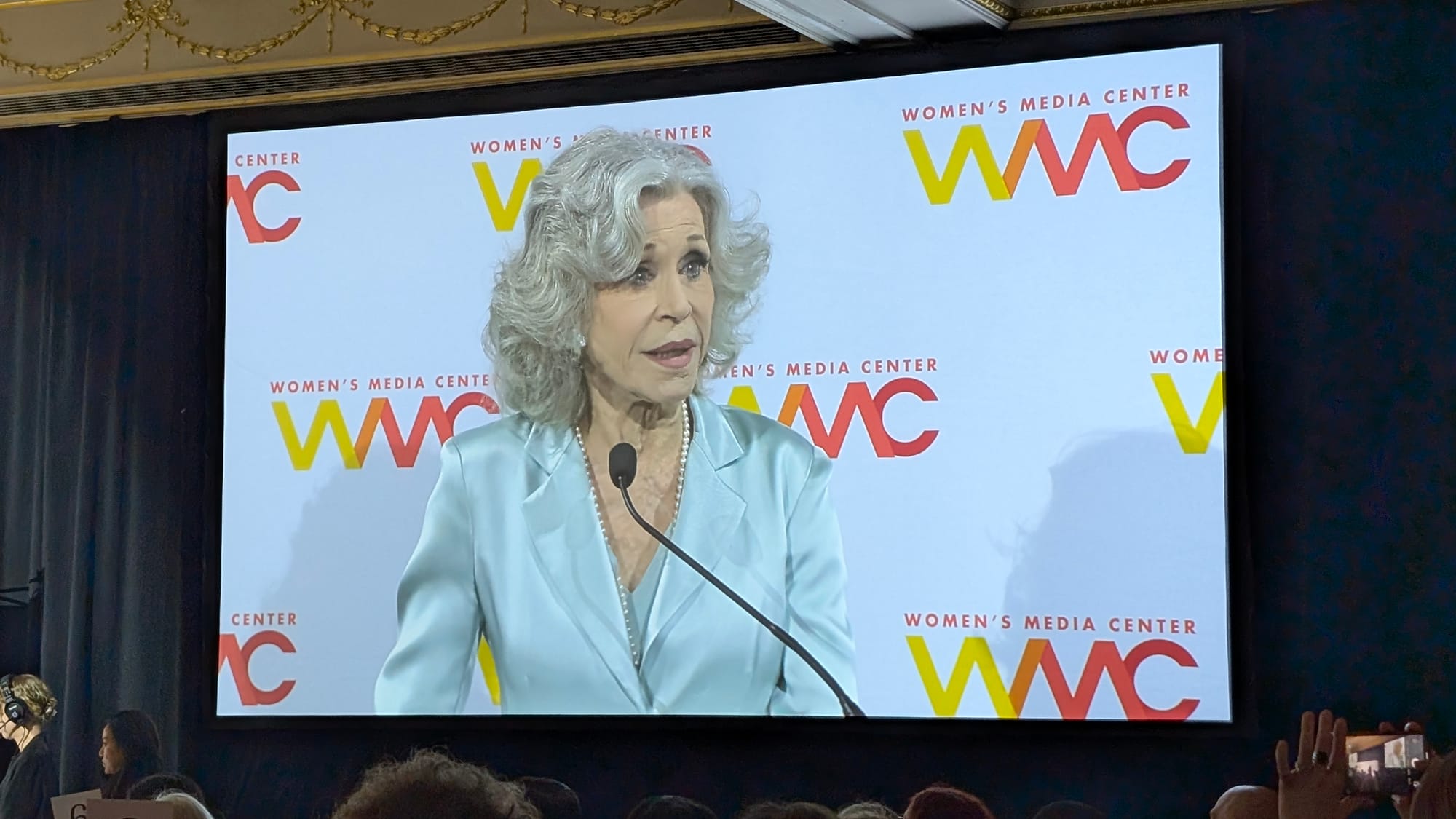
Last night I attended the Women's Media Awards, hosted by the Women's Media Center, an organization dedicated to diversity and improving the representation of women from all backgrounds in media. A friend of mine, S. Mitra Kalita, was honored with the Carol Jenkins Award for her work as a long-time journalist and the co-founder of URL Media, a company also dedicated to diversity and representation. During the ceremony, which honored author Imani Perry and activist Erica Smiley, among others, WMC co-founder and famed actress/activist Jane Fonda spoke off the cuff, encouraging the audience to push back against those who seek to strip women from public life. It was as moving as this moment is maddening.
While most of us enjoyed each other's company at the awards ceremony, joking about the imbroglio between our "Dear Leader" and his former sycophant, turned Bethenny Frankelstein's Monster, there was a sense that this moment in being a journalist is very fraught and different from what it has ever been before. While some offered words of encouragement on how they bounced back from layoffs and being pushed out of jobs that, in some cases, no longer exist, others just wondered how this all would play out.
I, at times, have wished I could skip ahead to the end of this saga to see who wins, who loses, and who survives all of this, because I hate transitionary periods. I hate having to sit with a problem, unable to solve it, and just exist in this Schrodinger's cat trick box. When do we get to open the box and see if we all get to live or die after America inevitably erupts? (In this metaphor, we are the cat, America is the box we are trapped in, and our current political environment is the poison that may — or may not — kill us all.) The answer is ... probably not for a long time, and it's absolutely killing me. Or at least starting to make me crack up a little.
While it's unlikely I will have a Musk-style crash-out, there are no guarantees that I won't go insane while waiting, working, hoping, praying, and hustling for some kind of resolution. Until then, I have to watch a grifter oil up his fiddle so he can play us a little ditty while Rome burns.
And in this metaphor, my Roman Empire is journalism, which is now dead.
Long live journalism.
